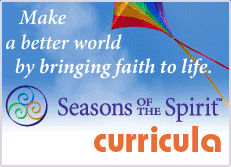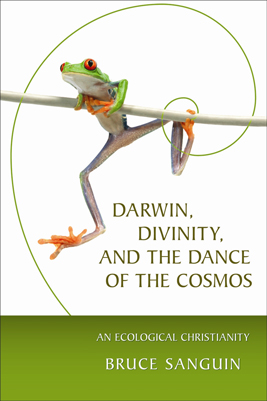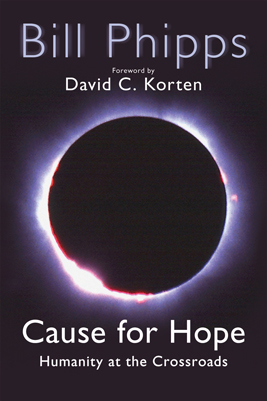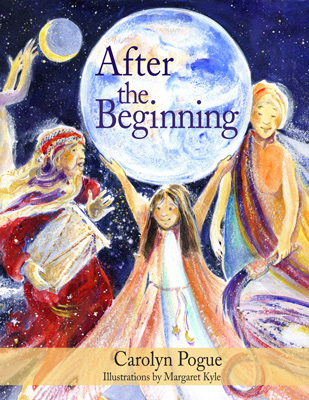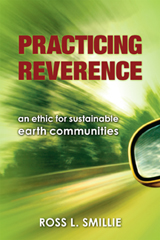
Practicing Reverence
An Ethic for Sustainable Earth CommunitiesRoss Smillie
208 PP | 6" x 9"
Paper
ISBN: 978-1-55145-593-8
Every day we hear more about how humans are degrading the environment and causing suffering to themselves and the rest of life. Where will it end? Practicing Reverence shows that it is up to all of us, in community, to live in ways that honour not just our own lives, but all life.
Minister, theologian, and environmental ethics teacher Ross Smillie combines his areas of expertise to document our current situation and, even more importantly, to offer hope. Smillie’s science background is evident in his extensive factual reporting of ecological issues. His engagement with theology and ethics balances scientific fact with moral and ethical ponderings. The result is an up-close view of how things “are,” and a glimpse of how things “could be.”
Smillie’s hope is that we learn to create “sustainable earth communities,” that we will leave our children, grandchildren, and the generations beyond with a vital and bountiful earth upon which to live. Of course, to reach this goal we must adapt our current actions. And so Smillie examines economics, technology, and religion, and identifies alternatives to our current practices. As a minister and theologian, he also allows for the work of the Spirit, to bring about more just and sustainable ways of living.
Practicing Reverence represents both a call and a challenge to those who genuinely desire the best for themselves and future generations, to join their efforts for the good of all.
Ross Smillie, Author
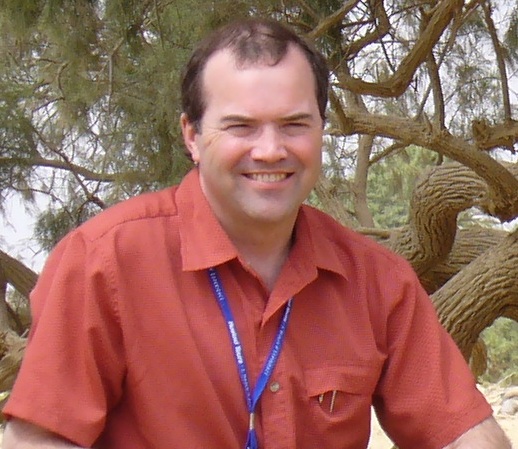
Ross Smillie, author of Cracking the Cover: A Beginner's Guide to the Bible is a minister with The United Church of Canada and teaches environmental ethics and theology through St. Stephen's College in Edmonton, Alberta. He is married with two grown children and enjoys sailing, curling, and skiing.
Media Reviews
Touchstone: Theology Shaping Witness, Volume 30, Number 3 (September 2012), 62-3
Shawn Sanford-BeckPracticing Reverence: an ethic for sustainable earth communities. Ross L. Smillie. Kelowna: Copperflouse, Wood Lake Publishing, 2011. Pp. 206.
On matters of great moral importance, to remain neutral is to fail the test . . . What is the great moral issue of our time? For what will we be judged by future generations? Where do our choices most matter? From among several worthy candidates, I believe our outstanding moral imperative is to maintain the health of the natural systems in which human life is embedded (Introduction).
Skillfully authored by United Church pastor and ethicist Ross Smillie, Practicing Reverence takes on the task of guiding the reader deep into the labyrinth of moral decision-making. Smillie asks, "How have we so fundamentally misunderstood the human place in relation to the rest of the earth that we undermine the capacity of the earth to sustain us at all? Distorted conceptions of what it means to live a good life have led us astray, and we now have to rethink what we understand the good life to be about and how to live it" (20).
The book begins with the requisite analysis of what is wrong with the world, in a chapter entitled "Fragile Systems." As the title indicates, Smillie's understanding of ecology is based on systems theory, and the complex relationships between natural and human systems. Moving away from a view of "environment" which locates the problem "out there," systems-based ecology sees humans as deeply embedded members of a much wider web of relations, a diverse biotic community. By exploring this ecological paradigm, and pointing out the various interrelated factors which threaten our planetary ecosystems, Smillie sets the stage for a far-ranging conversation about the ethical challenges facing us.
Using the Atlantic seal hunt as a case study, Smillie outlines several different types of moral or ethical arguments which are used by both opponents and advocates of the hunt. This allows him to survey natural law theory, utilitarianism, and deontological, rights-based arguments. While he describes the strengths and weaknesses of each theory, he regards the individualistic nature of each of these theories as a liability to ecological ethics. "Individuals cannot be isolated from the ecosystems of which they are a part," writes Smillie. "There is a balance to be struck between regard for the individual and regard for wider wholes. Any moral system that would accept skinning animals alive (for example) would be a questionable ethic. But a moral system that respects only individuals and pays no attention to families, communities, species, or ecosystems is not adequate either" (58-59).
This critique leads to the core of Smillie's constructive proposal: a form of character or virtue ethics adapted to the formation of good ecological "citizens of the Earth" (67). An ecological character ethic draws on the virtues of friendship, narratives, social practices, and traditions to help create individuals-in-community who are equipped to live the good life, a life which values wisdom in relating to the whole creation. He proposes Albert Schweitzer's "Reverence for Life" and Aldo Leopold's "Land Ethic" as good examples of the type of ecological character ethic needed in our day. After laying this foundation, Smillie devotes the remainder of his book to exploring economic policy, scientific research, and religious practice through this lens of ecological virtue and character ethics.
There is much to be valued in this text. Smillie provides an ethical toolkit which is sorely lacking in much contemporary discourse (and conflict) on environmental issues. His analysis is clear and scholarly, without being pedantic. The chapters on religious practices are especially helpful, layering a perspective which is courageous, hopeful, and bold, without being naïve about the depth of the challenges facing the Earth community.
Of course, there are also several shortcomings to this volume as well. I know it is an aesthetic issue, but I found the cover of the book quite off-putting. The view through the front window of a speeding car is in such opposition to the title of the book that it jars me every time I look at it! On a more substantive level, there are some important voices that are not heard (at least directly) in Smillie's work; eco-feminist, indigenous, and post-colonial perspectives and concerns are largely absent, even though the book as a whole is consonant with such perspectives.
In short, Practicing Reverence is definitely worth the read. For theological students and dedicated laypeople alike, Smillie's work goes a long way toward rendering complex ethical issues clear and accessible. By commending helpful and engaging narratives, traditions, and practices, Smillie assists all of us to become wise, and good, ecological citizens of the Earth.
Customer Review from Amazon.ca
R. MooreThis excellent book by Ross Smillie clears the way for an appropriate ethic for sustainable communities, indeed the place we all live! The reader is offered hope for a more positive future, but hope based on taking action so that, 'What must not be, shall not be' and having the courage to ensure that, 'What must be, shall be.'
The author suggests that despite the advances in the knowledge of science, the future of the earth will depend on people treating the earth as a sacred entity. Western reductionist knowledge of science disallows the sense of mystery that prevails and should be honored, even when something seems to be unexplainable. What we have discovered is that we will likely never have enough knowledge to successfully manipulate ecosystems. Despite our best efforts, we continue to see certain ecosystems come to their 'tipping point', especially due to irresponsible exploitation of natural resources.
While we are not left with extraordinary optimism for the future of humanity on the planet, we are helped to understand what has led us to go wrong. There is hope if science is supplemented by philosophical, theological, ethical and cultural considerations which promote policy makers to consider future generations.
This is a highly recommended read for one wishing to take more responsibility for the actions of their own life!!
The Ecumenist, Vol. 50, No. 3 Summer 2013/23
Harold Wells, University of TorontoThe author, a professor of environmental ethics and theology at St. Stephen's College, Edmonton, offers here a fine piece of ecological theology, and a good introduction, from a Christian perspective, of the general field of ethics. He does so by focusing upon the whole matter of ecological responsibility, and especially our obligations to ecosystems and non-human animals.
Smillie opens by stating that the great moral issue of our time, for which we will be judged by future generations, is the imperative to maintain the health of natural systems in which human life is embedded. (12) Specifically, climate change, the destruction of ecosystems, and the extinction of species comprise the great moral test of our time, comparable to the great moral challenges that faced humanity in the recent past: slavery, the Nazi treatment of the Jews, the equality of women, apartheid. He identifies with the Christian faith, which "venerates Jesus of Nazareth as the fullest revelation of the divine," but especially the Christian prophetic tradition, which he believes was, until the time of Constantine, an anti-imperial movement. He regrets that, with Constantine, Christianity mainly lost the prophetic focus of Jesus and his earliest followers, becoming an established institution within the empire, mainly concerned with obedience to authority, life after death, and reconciliation with God.
In the face of the great challenges of our time, the author declares: "I do not believe in a God who will supernaturally intervene to rescue us from the difficulties we have created for ourselves. If God were going to prevent great suffering, God would already have done so. That means that it is probable, given current trends, that ecological problems will cause greater and greater suffering. In short, I am not optimistic. But I am hopeful.,.." (20)
Chapter One, on "Fragile Systems," opens with a discussion of climate change, drawing upon scientific sources, and pointing out first the dramatic effects of the human burning of fossil fuels on the ocean ecosystem. Since about one third of the carbon dioxide emitted from coal, oil, and natural gas is absorbed into the ocean, making the water more acidic, marine organisms such as mollusks, coral, and plankton are seriously threatened. The diminishment of plankton is especially alarming, in that it is the foundation of the ocean food chain, and produces about half of the world's oxygen. He notes alarming statistics about the decline of fish harvests in the ocean, a major source of food for humans. He goes on to speak of the effects of global warming on farmland, fresh water, and air, which must not be treated merely as commodities, but as essential elements, together with the seas, of a single fragile, organic ecosystem. He warns of increasingly dramatic storms, drought, fire, and floods, and, as many climate scientists do, of feedback loops, whereby one change in the system can affect other areas of the earth's delicate interactive ecology. Thresholds, or "tipping points," are "non-linear" occurrences that can trigger other unpredictable events. For example, "A few degrees of global warming may have threshold effects that accelerate the effects of climate change. The loss of polar ice, the accelerating melting rate of glaciers, the changing ocean circulation patterns, the melting of permafrost, and the decimation of boreal forest could all produce threshold effects that would result in a very different world than the one in which we now live." (31)
The author goes on to speak of human systems and of "sin" as rebellion against our human nature. Defining sin mainly as injustice in pursuit of selfish goals, he points especially to corporations whose interests lie in fossil fuels and who seek out scientists who deny the majority scientific consensus on climate change. A "tragedy of the commons" occurs when public goods, including especially ecosystems, are damaged or destroyed by those who are concerned only for individual or group interests. "[S]ocieties that stress individual freedom will likely be fragile ecologically." (34) He insists that government regulations and international institutions have a vital role in preserving natural systems, and nations will inevitably have to choose between individual freedoms and healthy ecosystems.
The second chapter, on "We Animals and Our Ethics," explores three ethical theories and shows how they apply to our treatment of non-human animals: natural law, utilitarian, and deontological ethics. This is a nuanced, critical examination of these approaches to ethical thought, followed by discussions of individualism, postmodernthought, relativism, and character ethics. The title of the book draws from Albert Schweitzer's concept of "reverence for life"—"an attitude of both honour and fear in relation to non-human forms life." (79) He is inspired by Schweitzer's insights and practice, while pointing out flaws in his approach. He also writes appreciatively of Aldo Leopold's land ethic. Having discussed these various ethical theories and practices, Smillie concludes that each of them offers important insights, is open to criticism, and should be regarded as complementary to the others.
Discussion follows on matters relating to economics and science and how ethical thought should relate to each of these distinct disciplines. The latter part of the book discusses, in ecological perspective, theological issues about creation, stewardship and image of God, sabbath, and then develops richly his concept of "practicing reverence." He speaks insightfully about ritual, arguing that ideas and political methods alone cannot bring about the required repentance and conversion, or profound social change. These require rituals, which support alternative community, as an intermediate step between reality and ideal visions. Concerning God and Jesus, he writes: "The divine is no longer seen as the capricious power behind history, acting through kings and empire. Rather, the Christian story makes the astounding claim that the divine begins life as a homeless refugee and ends as a victim of brutal execution...." (159) If one critical note needs to be sounded here, it is about the absence of the language of resurrection, which is surely foundational for Christian hope, and basic to any Christian eschatological vision.
The last chapter, "No Fate: The Practices of Hope," explores the theme of hope and practical engagement specifically within the biblical/Christian tradition, speaks of the "participatory hope" of "anticipatory community," and of inward and outward journeys. Inward journeys of prayer, praise and lament, and sabbath observance must go together with "joyful austerity" and political engagement.
This is a highly accessible book, written simply and clearly, and very useful for undergraduate or basic degree students, not least in its clarification of various modes of ethical thought and its presentation of alternative theological perspectives, but also because of the challenge it offers to "shift from destructive to sustainable patterns of living," which is "the great work of our time." (186)
Customer Reviews
CJMThis is a compelling analysis of how our conventional world view is putting our world in danger. Change is needed before the situation becomes dire. What is refreshing to hear in this book is the call for church folk to be the agents of change and the encouragement to become leaders for good.
A plane filled with passengers hit some severe turbulence during the flight. There was a bright flash of light and an alarming loud bang. The pilot came on the intercom and said, “Ladies and gentlemen, I have some good news and some bad news. The bad news is that we were hit by lightning and all of our navigational and communications instruments are shorted out. We have no radio, no compass, no GPS. We have no idea where we are or what direction we are going in.” The captain paused, and people looked around nervously at each other as they absorbed the news. Then the captain continued, “But the good news is that we do know our airspeed, and we are making very good time.”
For me, that joke encapsulates the spirit of our times. We live in a society that is going somewhere very, very fast, but we often have no idea where that is, or if we want to get there. The power of modern science and technology means that we can do things that previous generations never dreamed of. We can communicate and transmit information instantaneously around the world. We can cure many diseases and alleviate painful conditions. We have globalized commerce and trade. We are indeed going somewhere very, very fast. But the questions raised by the joke are profoundly important: Do we know where we are going? And do we really want to go there?
As humans we are not totally governed by instinct. We constantly make choices that affect us, both individually and as a society. Some choices, like that of speed, are technical ones. Others, such as the question of direction, are moral choices. Some moral choices are profound and define a generation, and may be recognized only in retrospect. In Nazi Germany, for example, most people went about their ordinary lives without recognizing the moral significance of the Nazi treatment of Jews and other minority groups. Later generations of Germans look back on that time and wonder how it was that so many of their countrymen failed to recognize and act on the great moral test of their time. Remaining neutral on such questions is not an option. On matters of great moral importance, to remain neutral is to fail the test.
Similar moral tests for society arise for each generation. Slavery raised fundamental questions for the British in the early 1800s and in the United States in the Civil War. The movement for the equality of women was a fundamental test beginning in the early 20th century. Segregation had to be rejected in the southern United States in the 1960s and apartheid was the great question in South Africa in the 1980s.
What is the great moral issue of our time? For what will we be judged by future generations? Where do our choices most matter?
From among several worthy candidates, I believe our outstanding moral imperative is to maintain the health of the natural systems in which human life is imbedded. Climate change, the destruction of ecosystems, and the extinction of species, for example, constitute a cluster of issues that raise fundamental questions about the way we live. Simply by participating in ordinary life, we affect the viability of the natural systems on which all living creatures depend for their air, water, and food. Undermining these natural systems not only violates moral and aesthetic sensitivities about the well-being of non-human life, but also threatens the well-being of future human communities. If, as seems likely, the ability of the earth’s natural systems to support a good quality of life for future generations is degraded, our children and grandchildren will endure great suffering and have legitimate reasons to judge us as failures in the great moral question of our time. On this question, I believe that we are making very good time in exactly the wrong direction.


